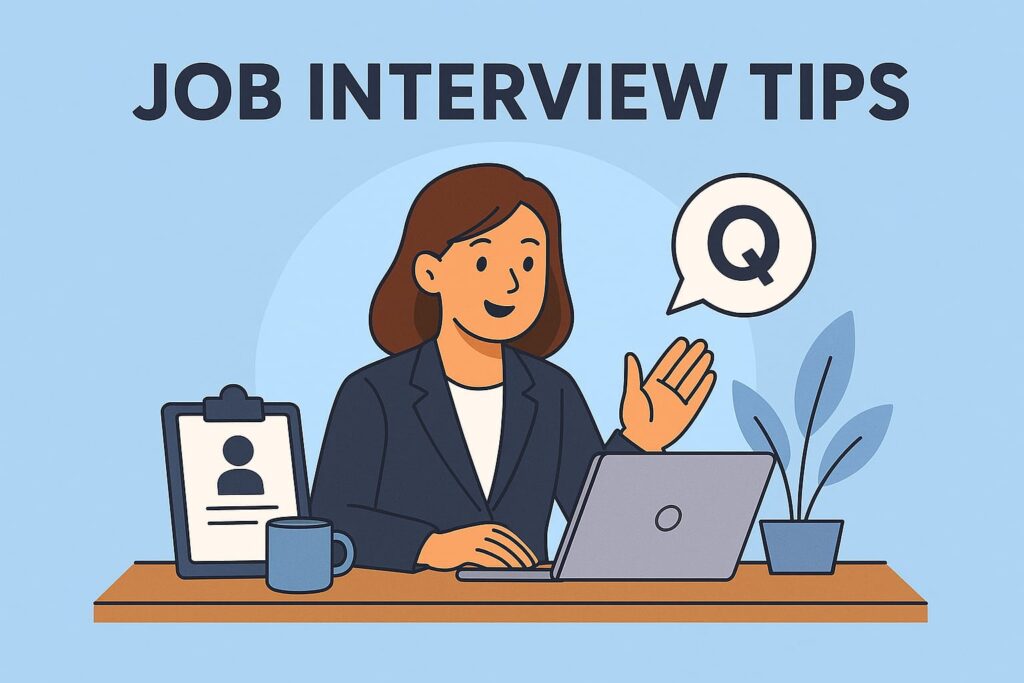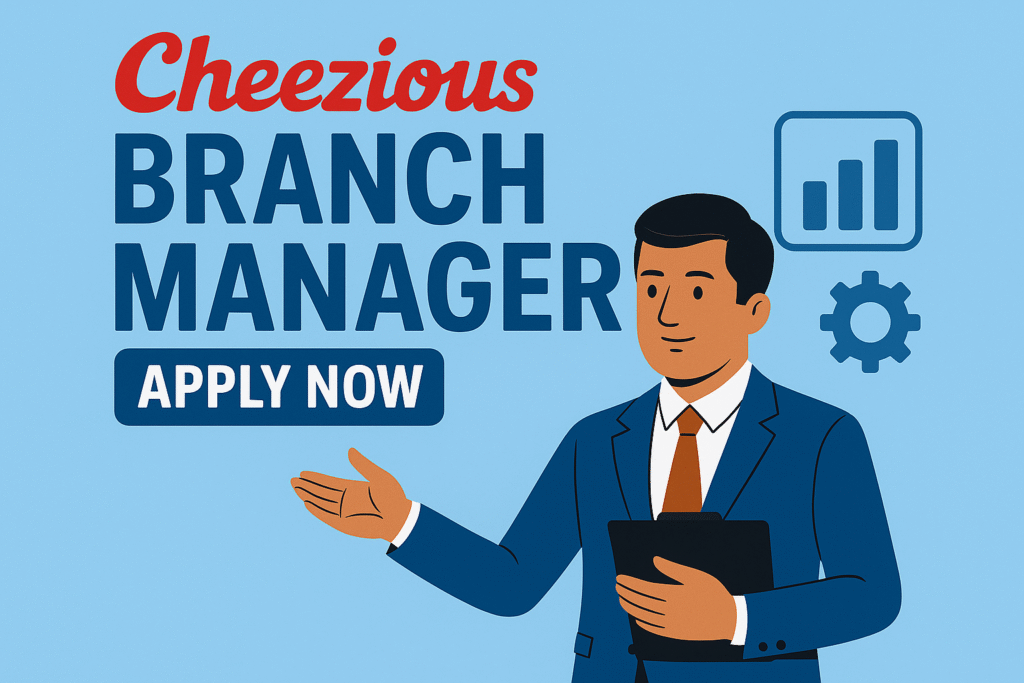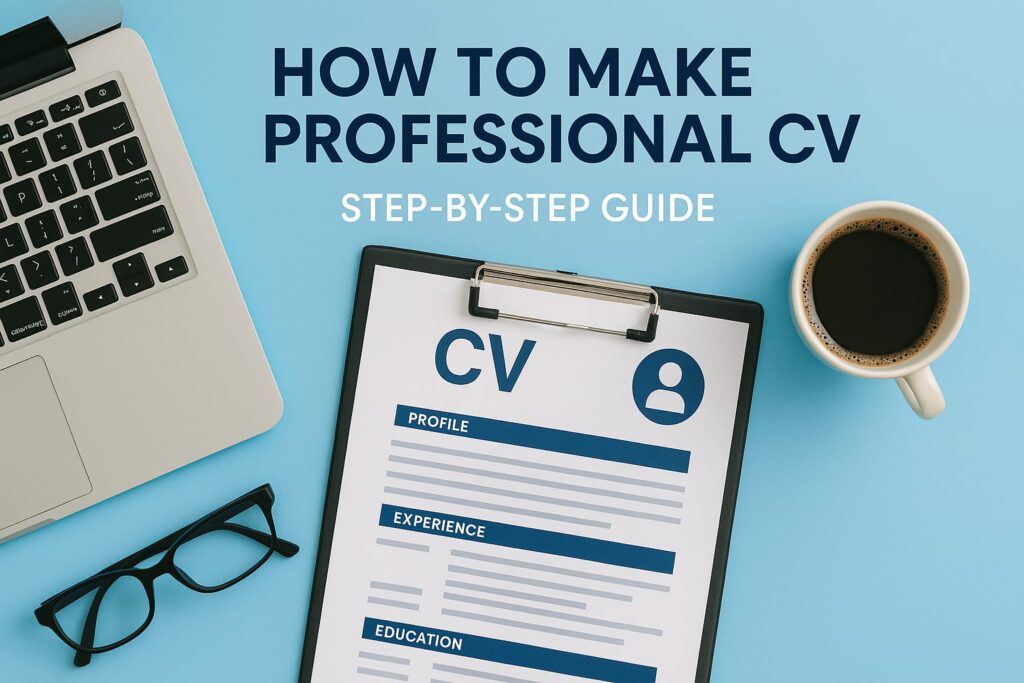A job interview is often the final and most important step between you and your dream job. No matter how impressive your resume is, your performance in the interview room can make or break your chances. It’s a moment where preparation meets opportunity and if you’re not ready, you could easily be overlooked in favor of someone who is. That’s why learning effective job interview tips is essential for anyone looking to succeed in today’s competitive job market.
Many people assume they can just “wing it,” but the truth is, hiring managers can quickly tell who’s prepared and who’s not. From the moment you walk into the room or log into a Zoom call, everything counts your body language, your tone, your answers, and even the questions you ask. Mastering these small yet critical elements can leave a lasting impression.
In this article, we’ll share powerful job interview tips that will help you feel confident, sound polished, and stand out from the crowd. Whether you’re applying for your first job or aiming for a leadership position, the principles remain the same: do your research, be authentic, and show why you’re the best fit.
So, if you’re tired of hearing “we’ll get back to you” and want to start hearing “you’re hired,” keep reading. These expert backed job interview tips can give you the edge you’ve been looking for.
- Understanding the Job Interview Process
- Before the Interview – Preparation is Key
- On the Interview Day – Make a Great Impression
- After the Interview – Follow-Up Smartly
- Common Mistakes to Avoid in Job Interviews
- Pro Tips to Stand Out in Job Interviews
- Key Takeaways: Mastering the Job Interview
- FAQs About Job Interview Tips
- Conclusion
Understanding the Job Interview Process
What Employers Look For
A common mistake many job seekers make is assuming the interview is just about qualifications. In reality, employers are evaluating much more than your resume. They want to know how you think, communicate, and solve problems.
Here’s what most hiring managers are really looking for:
- Relevant Skills and Experience: Can you handle the responsibilities of the role?
- Cultural Fit: Do your values and attitude align with the company?
- Communication Skills: Can you express yourself clearly and confidently?
- Problem-Solving Ability: How do you approach challenges?
- Passion and Enthusiasm: Do you seem genuinely interested in the role?
If you can demonstrate these traits effectively, you’re already ahead of the competition. That’s why personalized job interview tips matter — they help you highlight what employers value most.
Types of Job Interviews
Different companies use different types of interviews depending on the role, location, and urgency. Knowing what kind of interview you’re walking into can help you prepare smarter.
In-Person Interviews
- The traditional format, usually held at the company’s office.
- Allows for better observation of body language and professional presence.
- First impressions, attire, and confidence matter a lot here.
Phone Interviews
- Typically the first stage in the hiring process.
- Used to quickly assess communication skills and basic qualifications.
- Keep your resume nearby and stay in a quiet space.
Video Interviews
- Common in remote jobs or international hiring.
- Eye contact with the camera and professional background are key.
- Test your equipment beforehand to avoid tech glitches.
Group Interviews
- Multiple candidates interviewed at the same time.
- Designed to test teamwork, leadership, and communication under pressure.
- Be respectful but assertive; find the balance.
Understanding the structure and expectations of each interview type gives you a big advantage. Many effective job interview tips depend on tailoring your strategy to the interview format and that’s where preparation truly begins.
Before the Interview – Preparation is Key
Every great interview starts before you even enter the room or join the Zoom call. Preparation is where confidence is built. You may have all the skills on paper, but without the right groundwork, even the best candidates can fumble. I still remember my first interview for a marketing role I walked in without researching the company, and within 5 minutes, I knew I had blown it. That experience taught me one of the most important job interview tips of all time: never go in blind.
Research the Company and Role
Mission, Values, Products/Services
Understanding the company’s mission and values shows that you’re serious and aligned with their culture. Look at:
- The company website (About Us page is gold)
- Recent news or press releases
- Their products or services what do they offer, who do they serve?
Pro Tip: Mention something you genuinely admire about the company during your interview. It makes you memorable.
Analyze the Job Description
Matching Skills and Qualifications
Read the job description line by line. Highlight:
- Key responsibilities
- Required skills and qualifications
- Keywords repeated throughout
Then, think about how your experience matches those needs. Tailor your responses to reflect that match this is one of the most overlooked job interview tips, yet it’s incredibly effective.
Practice Common Interview Questions
Use the STAR Technique
Practicing common questions like “Tell me about yourself” or “Describe a challenge you overcame” is critical.
Use the STAR method:
- Situation
- Task
- Action
- Result
This framework helps you structure your answers with clarity and impact.
Plan Your Outfit
Dress Code Tips
First impressions matter. Dress one level more formal than the company’s culture. If you’re unsure, business casual is usually a safe bet.
- Clean, wrinkle-free clothes
- Neutral colors work best
- Avoid strong perfumes or flashy accessories
Prepare Your Questions for the Interviewer
Smart Questions to Ask
Always go in with 2–3 questions ready. This shows curiosity and engagement.
Some examples:
- “How do you define success in this role?”
- “What does a typical day look like?”
- “What are the biggest challenges facing your team right now?”
These types of thoughtful questions can turn the interview into a conversation, not an interrogation.
On the Interview Day – Make a Great Impression
The big day is here. Your preparation is done, you’ve practiced your answers, picked your outfit, and you’re feeling ready. Now, it’s all about execution how you carry yourself, how you communicate, and the impression you leave behind. I still remember one of my early interviews where I got all the answers right, but my nervous fidgeting and lack of eye contact cost me the job. That’s when I realized: confidence is as important as competence.
Let’s go over what to focus on during the interview to leave a lasting impression.
Arrive Early
Punctuality shows professionalism. Aim to arrive about 10–15 minutes early—this gives you enough time to settle your nerves, use the restroom, and review your notes.
Tip: Arriving too early (like 30 minutes) can actually make things awkward for the interviewer. Wait nearby if you’re too early, and enter at the right time.
Body Language Matters
Eye Contact, Handshake, Posture
Non-verbal cues speak louder than words. Keep in mind:
- Eye Contact: Shows confidence and engagement.
- Handshake: Should be firm, but not crushing.
- Posture: Sit up straight, avoid slouching or fidgeting.
These subtle actions can strongly influence how you’re perceived sometimes even more than your answers.
Be Clear and Confident While Speaking
Speak at a moderate pace. Avoid filler words like “um” and “uh.” If you need a moment to think, it’s perfectly fine to pause. Clear articulation shows that you’re composed and thoughtful. Practice this during mock interviews so it feels natural on the big day.
How to Handle Difficult Questions
You may face curveball questions like:
- “What’s your biggest weakness?”
- “Why did you leave your last job?”
- “Describe a time you failed.”
Stay honest but strategic. Always shift the focus toward what you learned or how you improved. One of the most helpful job interview tips is to turn tough questions into opportunities to showcase growth.
After the Interview – Follow-Up Smartly
Many people think the interview ends when you walk out of the room but the truth is, how you handle the after-interview phase can be just as important. This is the time to show professionalism, gratitude, and maturity. I remember one interview where I didn’t follow up, even though it went well. Weeks later, I found out the role went to someone else partly because they followed up with a thoughtful thank-you email. That’s when I realized: some of the best job interview tips focus on what happens after the interview is over.
Let’s explore how to handle this crucial phase the right way.
Send a Thank-You Email
This may seem like a small gesture, but it goes a long way. A well-written thank-you email within 24 hours shows appreciation and reinforces your interest in the position.
What to include:
- A genuine “thank you” for the opportunity
- A brief mention of something specific you discussed
- A reminder of your enthusiasm for the role
Pro Tip: Keep it short and sincere. This is one of those job interview tips that hiring managers always notice, yet many candidates skip.
Reflect on Your Performance
Don’t just wait to hear back take a few minutes to think about how the interview went.
Ask yourself:
- What did I answer well?
- Where did I hesitate or struggle?
- How can I improve for next time?
This honest reflection helps you grow, even if the outcome isn’t in your favor. Writing your thoughts down while they’re still fresh is one of the smartest job interview tips for long-term improvement.
Stay Professional Regardless of Outcome
Whether you get the job or not, how you respond matters.
If you’re selected:
- Respond quickly and professionally to accept or negotiate the offer.
If you’re rejected:
- Reply with grace and appreciation. You never know when another opportunity at the same company might come up.
Staying respectful and composed keeps your reputation strong and sometimes leads to future opportunities you never expected.
Common Mistakes to Avoid in Job Interviews
Job interviews are a crucial step in landing your desired job, but many candidates make avoidable mistakes that hurt their chances. Below are some common mistakes to avoid, along with useful job interview tips to help you perform your best.
Being Late
Arriving late to an interview is one of the biggest mistakes you can make. It gives the impression that you are unprofessional or don’t respect other people’s time.
How to avoid being late:
- Aim to arrive at least 10-15 minutes early.
- Plan your route ahead of time and factor in possible traffic delays.
- If an emergency happens, inform the interviewer as soon as possible.
Speaking Negatively About Past Employers
Talking badly about previous employers or colleagues creates a negative impression. It may make interviewers think you’re difficult to work with or hold grudges.
Instead, try this:
- Always speak positively and professionally about past experiences.
- Focus on what you learned from challenges rather than blaming others.
- Maintain a respectful tone throughout the conversation.
Overconfidence or Underselling Yourself
Either exaggerating your skills (overconfidence) or downplaying your abilities (underselling) can hurt your chances. Overconfidence may come off as unrealistic, while underselling suggests a lack of confidence.
To strike the right balance:
- Present your skills and achievements honestly and confidently.
- Use specific examples to demonstrate your experience.
- Avoid arrogance but don’t sell yourself short.
Not Researching the Company
Showing up without researching the company is a missed opportunity. Interviewers want to see that you understand their business, culture, and values.
Benefits of researching the company:
- You can ask relevant questions, making the interview more engaging.
- Tailor your answers to align with the company’s goals and values.
- Demonstrates your genuine interest and preparation.
Pro Tips to Stand Out in Job Interviews
Standing out in a job interview isn’t just about having the right qualifications. It’s about showing qualities and skills that make interviewers remember you positively. Here are some pro tips to help you shine during your interview.
Showcase Emotional Intelligence
Emotional intelligence means being aware of your own emotions and understanding others’ feelings too.
- Show empathy when discussing team experiences.
- Demonstrate how you handle stressful situations calmly.
- Highlight your ability to communicate effectively and build good relationships.
Employers value candidates who can work well with others and stay composed under pressure.
Tell Compelling Success Stories
Instead of just listing your skills, share real-life examples that prove your abilities.
- Use stories to show how you solved problems or exceeded expectations.
- Make your stories specific and relatable.
- Focus on your role and the impact you made.
These narratives help interviewers connect with you and visualize your contributions.
Align Your Answers with Company Goals
Showing that you understand the company’s mission and goals makes you a more attractive candidate.
- Research the company’s values and recent projects beforehand.
- Tailor your answers to reflect how your skills can help the company succeed.
- Mention how you can contribute to their current challenges or growth areas.
This shows you’re genuinely interested and ready to add value.
Use Data or Metrics When Possible
Numbers can powerfully demonstrate your achievements.
- Include specific metrics like sales growth percentages, time saved, or customer satisfaction ratings.
- Quantifying your results makes your success more credible and impressive.
- Even small numbers can make a difference if they clearly show impact.
Using data shows you’re results-oriented and understand the importance of measurable outcomes.
By applying these pro tips during your interview, you’ll not only answer questions but also create a strong, memorable impression that sets you apart from other candidates.
Key Takeaways: Mastering the Job Interview
- Preparation is Non-Negotiable
Research the company, role, and common interview questions in advance. Tailor your answers to the job description and practice using the STAR method. - Understand What Employers Really Want
Beyond qualifications, employers look for cultural fit, emotional intelligence, communication skills, and problem-solving ability. - Different Interviews Require Different Strategies
Whether it’s in-person, phone, video, or group interviews adapt your approach and understand what each format demands. - First Impressions Matter
Arrive 10–15 minutes early, dress appropriately, and pay attention to non-verbal cues like eye contact, posture, and a firm handshake. - Confidence and Clarity Are Key
Speak clearly, avoid filler words, and answer thoughtfully. Stay composed even when facing tough or unexpected questions. - Avoid Common Mistakes
Don’t be late, don’t badmouth previous employers, don’t exaggerate or undersell yourself, and never show up unprepared. - Follow Up Professionally
Send a thank-you email within 24 hours, reflect on your performance, and respond with grace—regardless of the outcome. - Stand Out with Emotional Intelligence
Show empathy, tell compelling success stories, align your responses with company goals, and use measurable results to highlight your impact. - Use Metrics to Prove Your Value
Back up your accomplishments with data wherever possible it builds credibility and shows you’re results-oriented. - Job Interview Tips Make the Difference
Consistently applying expert-backed job interview tips helps you appear confident, prepared, and like the best fit for the role.
FAQs About Job Interview Tips
Conclusion
Job interviews can feel intimidating, but with the right mindset and preparation, they become a powerful opportunity to showcase your true potential. From researching the company to practicing common questions, from making a great first impression to following up respectfully every step matters.
Remember, interviews aren’t just about answering questions correctly; they’re about connecting, communicating, and demonstrating why you’re the right fit for the role. The best job interview tips aren’t just about tricks or formulas they’re about being prepared, authentic, and professional at every stage.
So whether it’s your first interview or your tenth, stay confident, stay curious, and keep improving. With consistent effort and these proven job interview tips, your next opportunity could be the one that changes everything.



